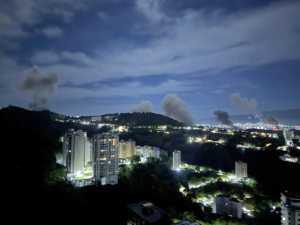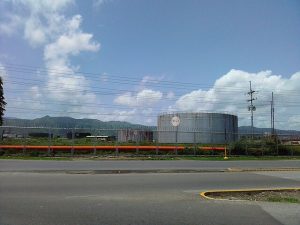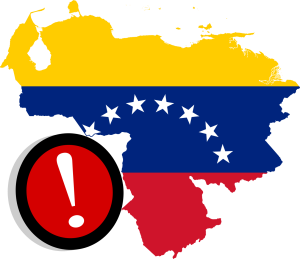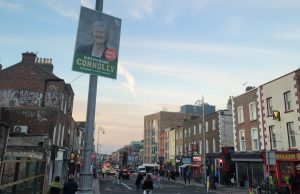
Fck Boris! Demonstration in Uxbridge. 16 November 2019. How do we sustain the enthusiasm and determination of the #GE2019 in the light of a Johnson victory? Photo: Steve Eason
How we fight back
rs21 •A devastating electoral defeat for Labour brings with it an inevitable battle for interpretation. It also sharply illustrates the need for our side to build power beyond parliament.
We knew that all the wrong people would be celebrating if Boris Johnson won this election. Donald Trump, the hedge-fund managers, the racists, the misogynists, the fossil fuel companies, Big Pharma, big agribusiness, the billionaire press barons. We all know the threat that a new Johnson government, and its supporters, pose to us, the people we love, live with, work with, care for. We are all too aware of the possible implications of a vote for these creeps in the crunch period of the climate emergency, after years of austerity, sadistic attacks on migrants, disabled people and the poor.
The battle for interpretation began as soon as the exit polls were in: was it simply that Labour’s message didn’t cut through in the ‘Brexit election’, or hostility to Corbyn, or media bias, or longer-term disillusionment with Labour in its traditional heartlands? Those on the Labour right, who have spent much of the past few years predicting and helping to ensure Labour’s failure, see their chance: they will not only want to get rid of Corbyn as leader, but to launch a much wider onslaught against the left. The battle over who succeeds Corbyn will be a crucial terrain on which this fight happens, but it cannot be the sole or the main focus for our energies in the months ahead.
We will need to stand together with all our comrades inside and outside the Labour Party. We will also need to take a sober look at what we have learned, how the result changes the political landscape – and what ideas, campaigns and organisations are going to be needed for the months ahead. rs21 members will be engaging in these debates wherever we are, on this site, and in open meetings around the country next week. Please join us in these discussions.
We should be wary of media exaggeration of the scale of Tory success: the overall Tory vote only increased by 1.2 %. While it appears many Labour voters have switched to the Tories in Leave areas, many others will have simply abstained. Thousands of activists campaigned and millions of voters voted for a Labour manifesto offering a vision of hope; but this election has also exposed that many, many others are feeling a deep disillusionment with all forms of politics.
It will be important to remember that the power of the Tories will not lie on stable grounds. There is an ever-growing demand for Scottish independence, an emerging movement for independence in Wales and a case for a united Ireland is ever stronger in the face of the disaster that is likely to unfold with a Tory Brexit. The Tory manifesto was painfully thin. Johnson has stood on a short-term platform of ‘getting Brexit done’, but he has not set out his plans to govern on a much wider set of issues. The climate emergency and the prospect of a global recession are terrible crises facing all of us, but Johnson has not attempted to articulate any kind of plan to address them. When the Tories try to push through measures for which they have sought no mandate, there will be major questions of legimitacy and obvious sites for resistance. We will need to remind ourselves of the very real weaknesses on their side, and look for ways to exploit them. But we will also need to find ways to build power on our own side.
Building power
Many thousands of people got involved in the campaign to get Labour elected. The mass participation in marginals turned electioneering into an exhilarating (if exhausting) collective experience. In the bleak post-election landscape, how can we sustain some of that enthusiasm and strengthen that sense of determination?
Throughout the campaign, we battled against both the influence of a hostile media and people’s own experiences of rotten Labour governments and local councils. Mass participation in the campaign meant that instead of canvassing merely being quick data-gathering for a subsequent ‘Get Out The Vote’ effort, campaigners could actually talk with people and try to shift their opinions. Almost everyone reported experiences of people who were surprised to be listened to after years of being ignored; people who shifted their opinions in discussion; people who reconsidered what their priorities really were from those promoted by the press; and people surprised to find out about policies that would benefit people like them.
But doorstep conversations have their limits. A ten-minute conversation with a stranger is competing with a bombardment of experiences, opinions and messages all day every day. To change minds on a mass scale requires more than good ideas and clever messaging. Our ideas are heavily shaped by our experiences. The collective experience of canvassing made people feel hope and power – often strongly enough to ride through bad polls and negative media.
As we can see all too clearly now, the same cannot be said of those being canvassed. For most voters, elections are pretty passive affairs. We all met people who didn’t trust the Labour manifesto, seeing it as too good to be true – people who had lost hope and set expectations to zero to avoid disappointment. It is collective participation in struggle that has the potential to raise expectations and challenge mainstream ideas.
A large minority hold radical ideas and have campaigned enthusiastically for Corbynism, but the numbers directly engaging in collective action have been small. If we are to regroup and build on firmer foundations, we will need to involve more people in struggle. Fortunately, our experiences electioneering and the skills we have gained can be fruitfully applied to organising in ways that build power and collective action – and change ideas too.
Canvassing attempts to talk to everyone in an area and to know who they are, a quite different approach to standing in a busy spot and talking to whoever comes by. It is an example of structural rather than self-selecting organising, which Jane McAlevey argues has much more potential for building big majorities and real power – growing your army rather than just mobilising those who are already convinced. Canvassers have got the idea of keeping track of the response from each person so you know your strengths and weaknesses and can follow up appropriately – organisers call this mapping or charting.
Though we won’t change everyone’s minds by 1-1 conversations alone, they are an essential element of successful organising. Thousands of people have built up valuable skills and confidence which could be applied for any campaign in any community or workplace.
If we are going to build on what has been achieved in this election, where are we best applying these skills and experiences? It is worth considering some of the weaknesses of the election campaign from an organising point of view.
Labour supporters are inevitably concentrated in Labour’s urban strongholds. Campaigning focused on marginals for obvious and valid short-term reasons. This meant that we were often campaigning in areas far from where we lived, rather than in our own neighbourhoods. The downside of this was that canvassing was often a bit of a ‘raid’, with no prospect of building ongoing political relationships or personally following up on what was said. Community-based campaigns can build participation much more effectively by helping the individuals form a powerful collective in their own area. The same approach can be taken in workplaces, which are often sites of significant potential power.
There are a thousand vital issues to campaign over – from global issues like climate, through national issues like the NHS, to issues local to particular communities or workplaces. Whatever people focus on, organising to build participation in collective action is the surest way to change lives, change minds – and change governments.













0 comments